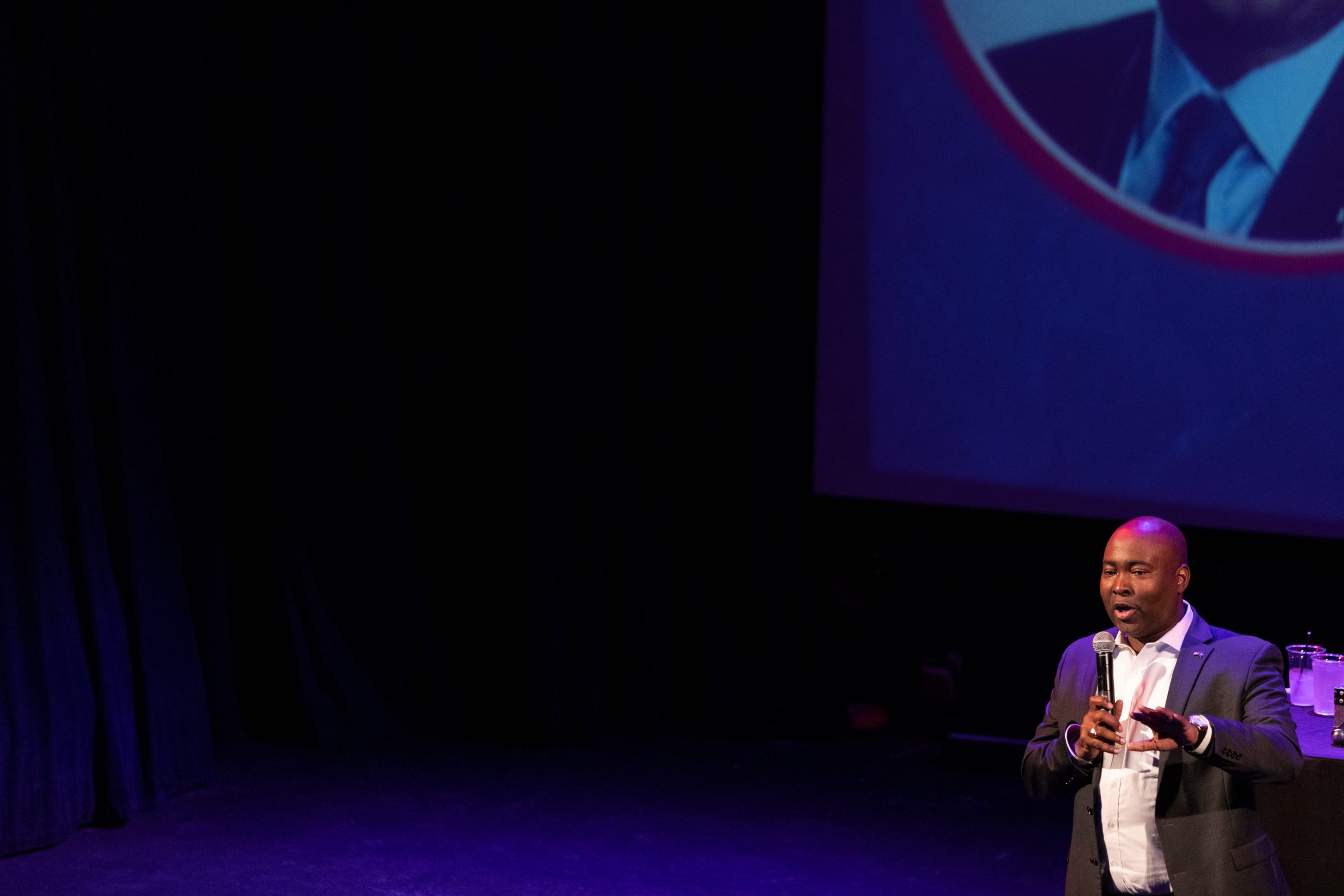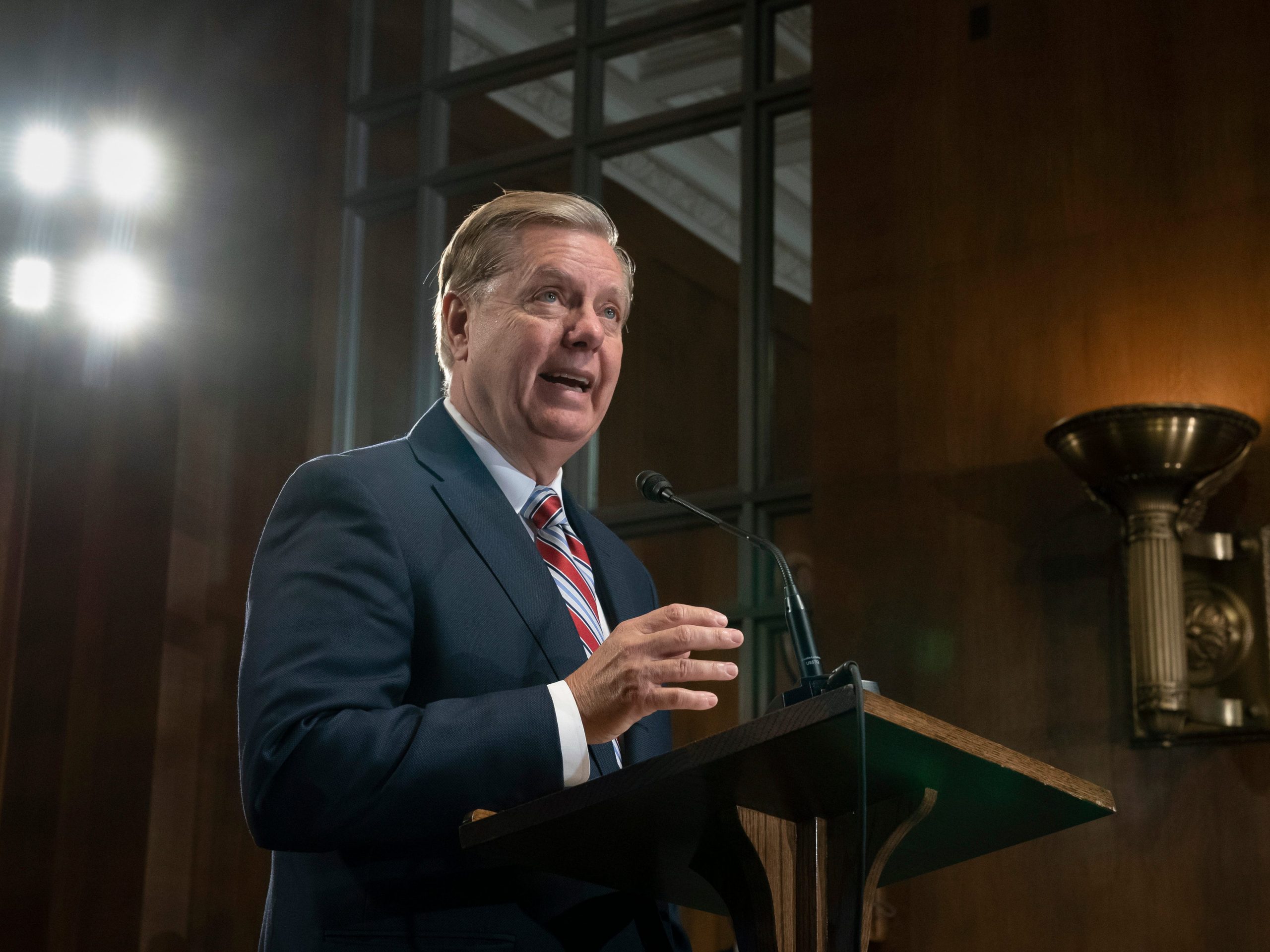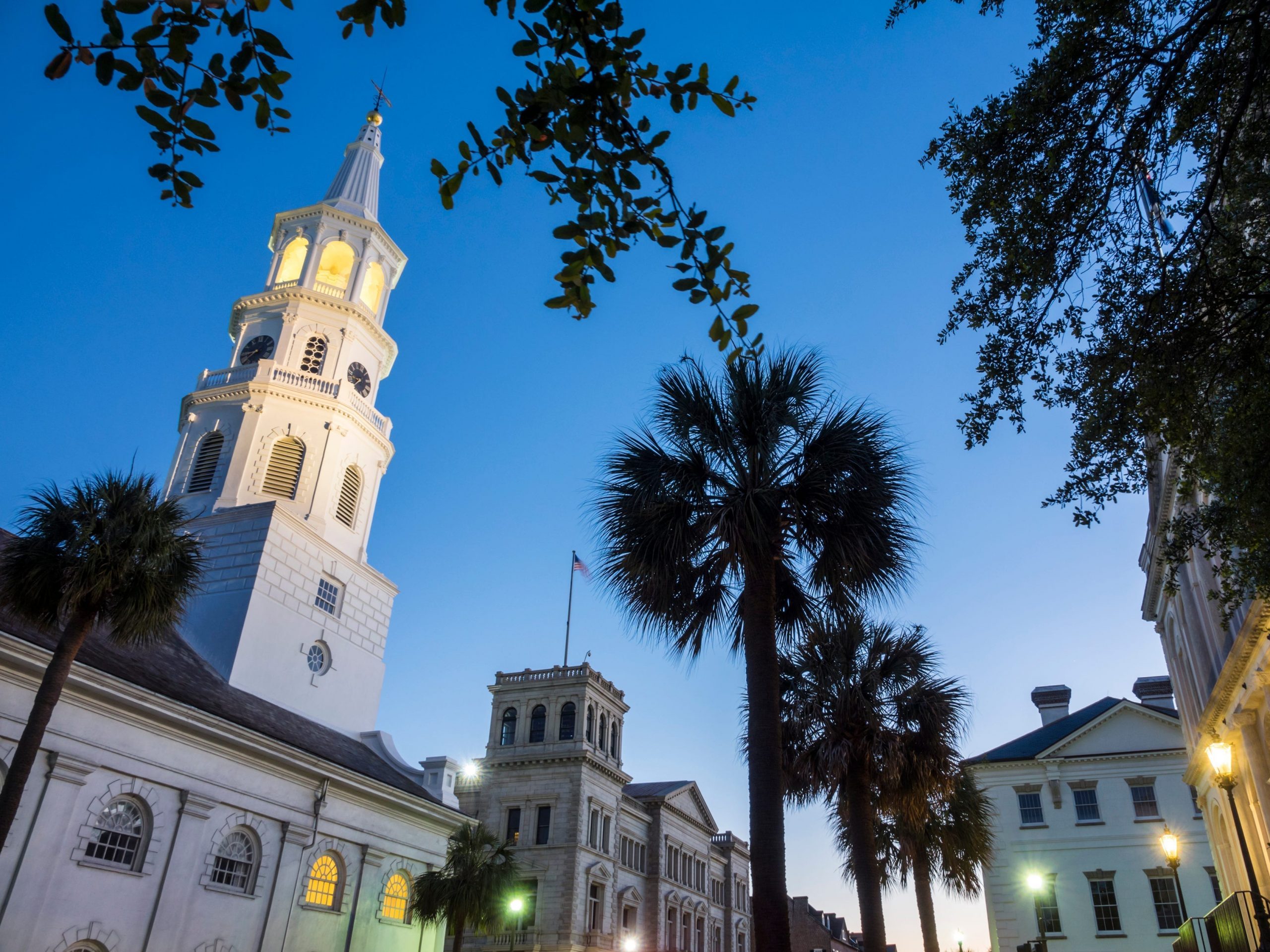
Cheriss May/NurPhoto via Getty Images
- Former state Democratic Party chairman Jaime Harrison is challenging three-term GOP Sen. Lindsey Graham for the US Senate in South Carolina.
- Once thought to be a safe hold for the Republicans, the Senate race has become part of the expanded Democratic calculus for winning a Senate majority.
- Several major polls, including surveys conducted by Morning Consult and Quinnipiac University, have shown the race either tied or with one candidate holding a small lead.
- Harrison has run a highly disciplined campaign, and a victory in South Carolina, a longtime bastion of Southern conservatism, would be a jolt to Democrats across the country.
- Democrats have not won a Senate race in the Palmetto State since 1998.
- Visit Business Insider’s homepage for more stories.
Lindsey Graham wasn’t supposed to be in trouble anymore.
For years, the longtime US Senator from South Carolina had been viewed suspiciously by many Republicans in the Palmetto State, despite his mostly conservative voting record. From his willingness to vote for liberal-leaning Supreme Court nominees like Sonia Sotomayor and Elena Kagan to his outspoken criticism of Donald Trump during the 2016 Republican presidential campaign, Graham had universal name recognition, but lacked the strong support of GOP activists compared to fellow South Carolinians like Sen. Tim Scott and former Sen. Jim DeMint.
Then, Brett Kavanaugh happened.
In September 2018, the federal judge went through a bruising Supreme Court confirmation battle after being accused of a decades-old sexual assault by Dr. Christine Blasey Ford, a California psychology professor. Graham, incensed by attacks on Kavanaugh during the hearings, lambasted Senate Democrats in a video that went viral. Overnight, Graham had finally become “one of the guys” to many conservatives, with President Trump praising him and reelection to a fourth term looking like a sure bet.
In May 2019, Jaime Harrison entered the Senate race.
Harrison had a compelling life story as a native son who was raised by his grandparents in Orangeburg and went on to graduate from Yale University and the Georgetown University Law Center. He later worked as an aide to House Majority Whip Jim Clyburn and as a lobbyist in Washington before becoming the first Black chairman of the South Carolina Democratic Party. As a political moderate, he supported Medicaid expansion and raising the minimum wage, while opposing the Green New Deal and an elimination of the Senate filibuster.
Still, most pundits didn't give Harrison a chance. When he formally announced his run against Graham, he leaned heavily on themes of integrity and loyalty, values that he felt would resonate with voters.
"Lindsey Graham can't lead us in any direction because he traded his moral compass for petty political gain," Harrison said in his first campaign ad. "He's forgotten about the people that he represents...You."
Over the past few months, Harrison's campaign has taken off, pushing Graham into the biggest political fight of his life.
"All Politics are Local"
Late last year, Harrison released an ad where he narrated the story of an older Black man who lived off a dirt road in a rural county. The man told Harrison that until a politician could pave his road, he didn't want to be bothered with an appeal for his vote.
—Jaime Harrison (@harrisonjaime) November 4, 2019
Harrison has campaigned on local concerns, seeking to revitalize communities across the state, preserve rural hospitals and expand access to educational opportunities. Lately, he has also been discussing ways to better handle the coronavirus pandemic that has left nearly 750,000 South Carolinians out of work.
He has drawn a sharp contrast with Graham, while increasing his own visibility in the process.
"Our infrastructure is falling apart and we don't have broadband in our rural communities," Harrison told Business Insider in an interview. "This is the song that we've been singing since we announced. Senator Graham just hasn't focused on these issues...He likes to play Washington political games. 'All politics are local' is true. You want someone with an ear to the ground and who understands the hardships that people are going through."
"Senator Graham doesn't have that," he added.

AP Photo/J. Scott Applewhite
Harrison also said that there's a trust factor that's gone, further severing a relationship with voters that once allowed Graham to win comfortably with the state's moderate Republicans and independents. Where Graham once supported Congressional term limits and previously stated that presidents should not appoint Supreme Court justices in presidential election years, he has now served in the Senate for 18 years, in addition to his 8 years in the House of Representatives, and he's on the cusp of successfully pushing through the Supreme Court nomination of Judge Amy Coney Barrett less than a month before the November election.
"He has not been honest with the people of this state," Harrison said. "People appreciate you saying you've changed your mind if you just admit it...I believe that a man is only as good as his word."
The Kavanaugh Effect
In July 2015, when Graham and Trump were primary rivals for the GOP presidential nomination, Graham called Trump a "jacka--" in an interview. Trump responded by reading out Graham's cell phone number on live television.
Five years later, Graham is now a reliable supporter of Trump's agenda and has become a confidant and occasional golf partner to the president, with their relationship strengthened by the Kavanaugh hearings as well as Graham's role as chairman of the Senate Judiciary Committee.
Danielle Vinson, a professor of Politics and International Affairs at Furman University, said that the Kavanaugh hearings contributed to the erosion of Graham's standing throughout the state.
"His defense of Kavanaugh certainly played well among conservatives, but it did not play well with liberals and women," she said. "It felt like he was dismissing the allegations. A number of groups realized that he's [Harrison's] a quality challenger who knows the state and could register their frustrations."
This week, Graham will attempt to shepherd Barrett's Supreme Court nomination through the Senate in the face of a coronavirus pandemic that has killed over 3,500 South Carolinians since March.
Harrison is opposed to the Barrett nomination, criticizing the "rushed" timeline that Graham himself crafted.
A Changing State
The last Democratic presidential nominee to win South Carolina was Jimmy Carter, a former governor from neighboring Georgia, in 1976. In 1998, Ernest "Fritz" Hollings won reelection to his sixth and final Senate term, the last time a Democrat was elected to a statewide federal office in South Carolina; that same year, Democrat Jim Hodges was elected governor and since leaving office in 2003, no one from his party has won the Governor's Mansion. Democrats last won a statewide office in 2006 and have been the minority party in both houses of the South Carolina General Assembly for years.
Republicans have been dominant in the state since the mid-1990s and Graham has never received less than 54% of the vote in any of his three general elections. In November, Trump is strongly favored to carry the state once again.
Harrison, who has never held elective office, is tasked with figuring out how a South Carolina Democrat can actually win statewide in 2020.
"I don't see a lot of [conservative] Greenville County Republicans voting Democratic," Vinson, the professor, said. "But I could see the Charleston crowd supporting Harrison. [US Representative] Joe Cunningham has already won that area as a Democrat."
Cunningham, a moderate, was elected to the GOP-friendly 1st congressional district in 2018, a major upset in a district that had not sent a Democrat to Congress for 38 years.

Jeffrey Greenberg/Universal Images Group via Getty Images
"Harrison's got to get the Democratic turnout in Greenville, and he'll have to rack up a lot of votes in Orangeburg, Columbia, the Midlands, and along the [Atlantic] coast to have a chance," Vinson said. "There is still a moral conservative component to the state that won't evaporate anytime soon, but new international industries are locating here. If the state keeps that going and brings in more folks who aren't from this part of the country, it'll make things more competitive."
If Graham were to win, he would need to regain some of his past appeal with suburban voters and pick off independents who may be on the fence about Trump.
"I haven't heard a lot of changes of heart in older voters," Vinson added. "I think there are some conservative women who are pressured in general — from Trump's behavior to issues that affect their family like coronavirus. I really don't know how they will decide."
A Tightening Race
Earlier in the year, the few public polls that were released showed Graham comfortably ahead, with many voters unfamiliar with Harrison.
However, this dynamic had changed considerably by late summer.
A Quinnipiac poll released in early August revealed a tied race, with Harrison and Graham both garnering 44% of the vote. In late September, a CBS News/YouGov poll revealed a close race, with Graham holding a 1% lead (45%-44%). The most recent Quinnipiac University poll, also from late September, showed the race tied once again, with Harrison and Graham both receiving 48% of the vote from a pool of 1,123 likely voters.
As a result, the nonpartisan Cook Political Report shifted the race from "Lean Republican" to "Toss Up" in early October. Jessica Taylor, the Senate and Governors editor at the Cook Report, wrote that the change demonstrated "just how fast the GOP majority is slipping away if they have to defend turf like this, and also how much Trump's numbers have fallen across the board."
Another nonpartisan forecaster, Sabato's Crystal Ball at the University of Virginia Center for Politics, currently classifies the contest as "leans Republican."
Spending Spree
The race has brought unprecedented levels of fundraising to the Palmetto State.
On Sunday, Harrison's campaign announced that they raised $57 million in the third quarter of 2020, a historic amount for a Senate candidate, according to Politico. Harrison shattered the $38.1 million quarterly record set in 2018 by then-Rep. Beto O'Rourke of Texas in his bid against Republican Sen. Ted Cruz.
In total, Harrison has raised roughly $86 million for his campaign, while Graham raised about $30 million through June, according to the Associated Press. Graham has not released his third quarter figures yet.
"This campaign is making history, because we're focused on restoring hope back to South Carolina," Harrison campaign spokesman Guy King said in a statement.
In September, the huge sums of cash being poured into the race led Graham to make an appeal to supporters on Fox News, where he said that he "was getting killed financially" by Harrison, who he predicted "would raise $100 million."
Graham's camp said that the closeness of the race was attributable to out-of-state donations.
"Liberal Democrats from across the country have poured record-breaking amounts of money into South Carolina because of Senator Graham's conservative record of accomplishment," Graham campaign Communications Director T.W. Arrighi said in a statement.
The Final Weeks
For most of 2020, Harrison has held the majority of his campaign events virtually, while Graham has generally conducted in-person events throughout the state. When both men met for their first televised debate at Allen University in Columbia, South Carolina, in early October, Harrison used a plexiglass partition to shield himself from Graham.
"Tonight I am taking this [the coronavirus] seriously," Harrison said during the debate. "That's why I put this plexiglass up. Because it's not just about me — it's about the people in my life that I have to take care of as well. My two boys, my wife, my grandmother."

AP Photo/Meg Kinnard
Ahead of last week's second televised debate, Graham declined to take a COVID-19 test, despite his exposure to Trump and at least two other US senators who all tested positive for the disease. The debate format was quickly changed from an in-person meeting to two individualized candidate forums.
Harrison is making Graham's lack of urgency regarding the coronavirus pandemic a major issue of the campaign.
"There are a lot of people who liked Lindsey because they thought he could get things done," Harrison told Business Insider. "He brings up the Supreme Court. I don't think that's going to help Lindsey win. How does that address how COVID has impacted the lives of people?"
"We all want the American dream," he said. "You need a senator who is sympathetic to what is going on."
If Graham wins reelection, he will likely claim a mandate for conservatism. But if Harrison captures the seat, it will reflect a new chapter in a new American South.
